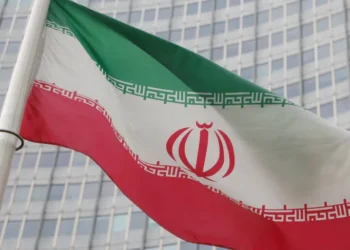The Government of Ghana has announced a series of bold measures aimed at easing the operational burden on businesses, with a particular focus on streamlining registrations, reducing regulatory hurdles, and simplifying the tax administration system.
Speaking at the 65th Annual General Meeting of the Ghana Employers’ Association (GEA) in Accra, the Minister of Labour, Jobs and Employment, Dr. Abdul-Rashid Pelpuo, emphasized that these reforms are designed to make it easier for enterprises—from large corporations to small and medium-sized businesses—to thrive.
Dr. Pelpuo said the initiative was not only about cutting bureaucracy but also about creating an enabling environment that supports investment and expansion. “Predictability and stability are the bedrock of confidence, and without confidence, there can be no significant investment or expansion,” he stressed.
Harnessing Technology to Cut Bureaucracy
One of the government’s central strategies is the integration of artificial intelligence (AI) into public service operations. According to Dr. Pelpuo, AI deployment across government agencies will enhance transparency, reduce delays, and eliminate the frustrations businesses often face when navigating bureaucracy. The Minister added that these investments in technology will also boost efficiency in service delivery while minimizing human errors and corruption risks.
This move aligns with the event’s theme: “Leveraging Technology for Enterprise Development: The Way Forward.” It reflects the government’s recognition that digital transformation is not a luxury but a necessity for creating a modern, competitive economy.
Beyond technological integration, the government reaffirmed its commitment to maintaining a stable macroeconomic environment. Dr. Pelpuo highlighted that sustainable management of inflation and interest rates would provide businesses with the predictability needed to plan and expand operations. He stressed that stability builds confidence among investors, ensuring that Ghana remains an attractive destination for both local and international capital.
Jobs at the Heart of Economic Strategy
While streamlining regulations and boosting business operations are vital, Dr. Pelpuo underscored that the ultimate measure of economic success lies in job creation. “The true measure of our economic success is not just in GDP figures but in the number of dignified and sustainable jobs we create for our people,” he said.
To achieve this, the government is placing skills development and vocational training at the center of its policy agenda. By equipping young people with the right skills, Ghana seeks to ensure that its youth are not passive beneficiaries of economic reforms but active participants and drivers of growth.
Nana Dr. Emmanuel Adu–Sarkodee Afriyie, President of the GEA, stressed that technology is rapidly reshaping economies, labor markets, and businesses worldwide. He pointed out that Ghanaian enterprises must adopt emerging tools such as digital finance, cybersecurity, blockchain, AI, cloud computing, and big data to remain competitive in the global marketplace.
“These technologies are no longer optional, as we treated them yesteryears; they have become the backbone of competitiveness, innovation, and enterprise resilience,” he remarked. He emphasized that the government’s reforms must go hand-in-hand with private sector readiness to adapt to these innovations.
MTN Reaffirms Commitment to Digital Growth
Adding to the discussions, Stephen Blewett, CEO of MTN Ghana, highlighted the company’s commitment to investing in digital infrastructure, platforms, and partnerships that empower businesses across the country. In a speech read on his behalf, he said, “The way forward for enterprise development is unmistakably digital. Connectivity, digital platforms, AI, and skills will define the future of competitiveness.”
Mr. Blewett reassured the audience that MTN remains committed to Africa’s growth story, citing the diversity and creativity of its people as the continent’s greatest resource. He called for collaboration between governments, businesses, academia, and stakeholders to unlock Africa’s technological potential.
The government’s business-friendly reforms, combined with private sector enthusiasm for digital transformation, signal a new era for Ghana’s enterprise development. If successfully implemented, the measures will not only reduce the operational burdens on companies but also catalyze innovation, attract investment, and most importantly, create jobs.
READ ALSO: EC Declares NDC’s Alidu Seidu Winner in Tamale Central By-Election


















